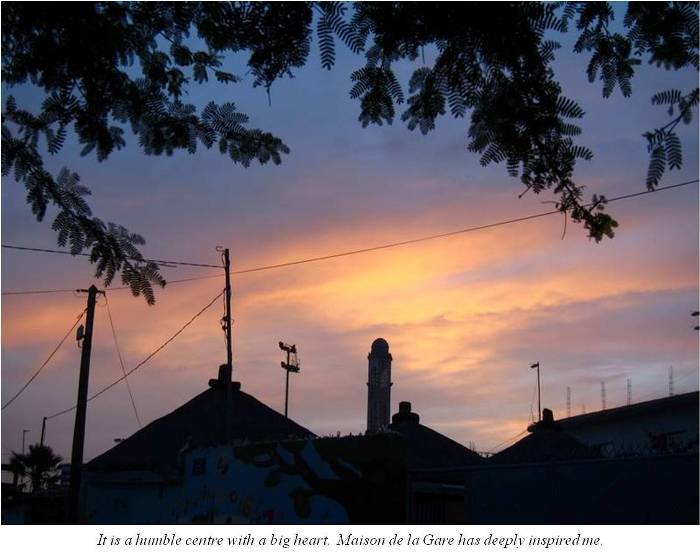News from Maison de la Gare
A Day in the Life of Maison de la Gare
Tweeter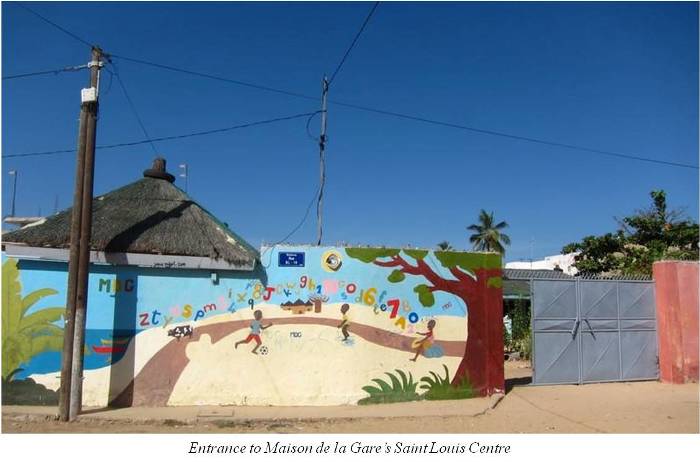
A Photo-Essay by Jack Wang
In a previous article, Jack recounted his serendipitous
encounter with Maison de la Gare following a chance meeting with Thaddaeus Lister, a former volunteer,
on the plane to Africa. 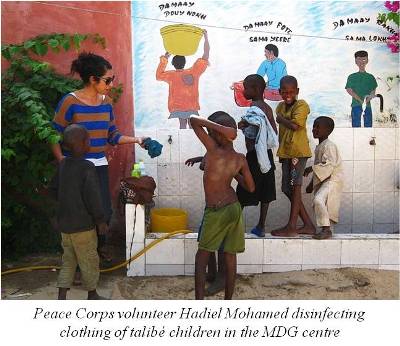 In this earlier article, Jack celebrated “Discovering the Talibés” with an album
of moving photographs. The photos here provide a glimpse of Maison de la Gare during a typical day.
In this earlier article, Jack celebrated “Discovering the Talibés” with an album
of moving photographs. The photos here provide a glimpse of Maison de la Gare during a typical day.
“Maison de la Gare is the place that largely defined my Senegalese experience. I worked closely
with the founder Issa Kouyaté to photo-document his daily activities to promote his work and the MDG
centre. Maison de la Gare, founded in Saint Louis in 2007, is a non-governmental and not-for-profit
organization dedicated to helping the talibés. The word “talibé” describes students,
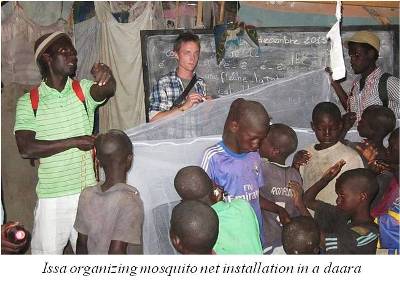 always boys,
who are studying the Koran and begging for a living.
always boys,
who are studying the Koran and begging for a living.
Maison de la Gare’s garden grows its own vegetables, aiming to help some of the talibés to become
self-sufficient. The centre opens to talibé children from 10 a.m. each day, and the children come
to play in the courtyard, receive medical treatment, have a shower and take classes in the evening.
Volunteers regularly check the boy’s clothing; not surprisingly fleas are often found, sometimes
with 100s of eggs. 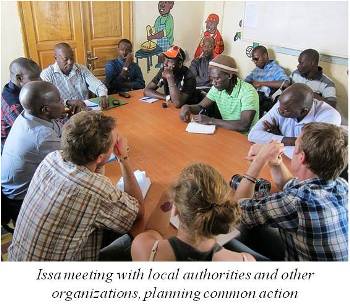 The infected clothes are treated with bleach that kills the eggs, and soapy
water that kills the fleas.
The infected clothes are treated with bleach that kills the eggs, and soapy
water that kills the fleas.
I met one teenage boy who came to the centre with a broken lip after having been beaten by his
marabout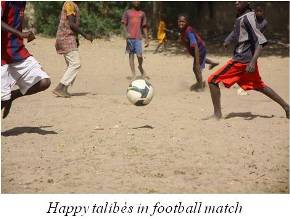 ... not an uncommon occurrence. He received medical treatment immediately from a volunteer.
... not an uncommon occurrence. He received medical treatment immediately from a volunteer.
On one day, I followed a team of volunteers as they installed mosquito nets that had been donated
by UNICEF in the daaras where the boys live. I also attended a meeting
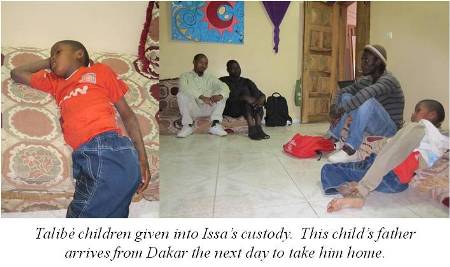 where Issa met with
representatives of the local government and other organizations to plan together actions to help
the talibés.
where Issa met with
representatives of the local government and other organizations to plan together actions to help
the talibés.
Issa regularly receives phone calls from local authorities or the police asking him to collect
runaway talibés. In one case I witnessed, Issa subsequently contacted a relative of one of these
boys to come to collect him. Often the children stay in Issa’s apartment until he can find a
suitable placement 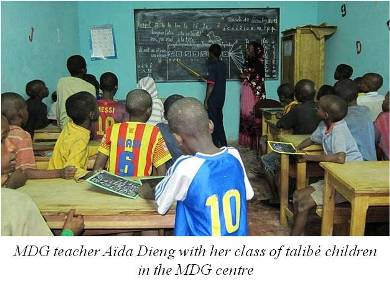 for them. In the picture here, the child’s father came from Dakar the next
afternoon to take him home. Often, however, the placement is more difficult and takes much longer.
for them. In the picture here, the child’s father came from Dakar the next
afternoon to take him home. Often, however, the placement is more difficult and takes much longer.
Thursday is the kid’s favourite day, because it is sports day when the centre organizes
football matches.
The centre offers classes every evening to educate the talibé children.
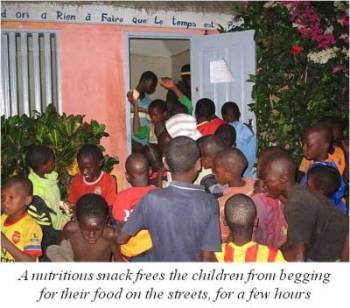 Volunteers prepare a
simple meal for them.
Lots of talibé children have practically not eaten the whole day. Thus,
they are particularly excited to receive clean, fresh baguette snacks from the centre so they
don’t need to beg for this food on the streets.
Volunteers prepare a
simple meal for them.
Lots of talibé children have practically not eaten the whole day. Thus,
they are particularly excited to receive clean, fresh baguette snacks from the centre so they
don’t need to beg for this food on the streets.
It is a humble centre with a big heart. Maison de la Gare has deeply inspired me."
Please click here for Jack's earlier article
on "Discovering the Talibés"
